“You have to reckon with the fact, that your project will change” — interview with Joanna Krokosz
Interview with Joanna Krokosz – make me! finalist 2018 and 2019, product designer and lecturer at the Faculty of Arts of the Pedagogical University of Krakow, in the field of Design. She deals with universal design with particular emphasis on the needs of the elderly, children and people with disabilities.
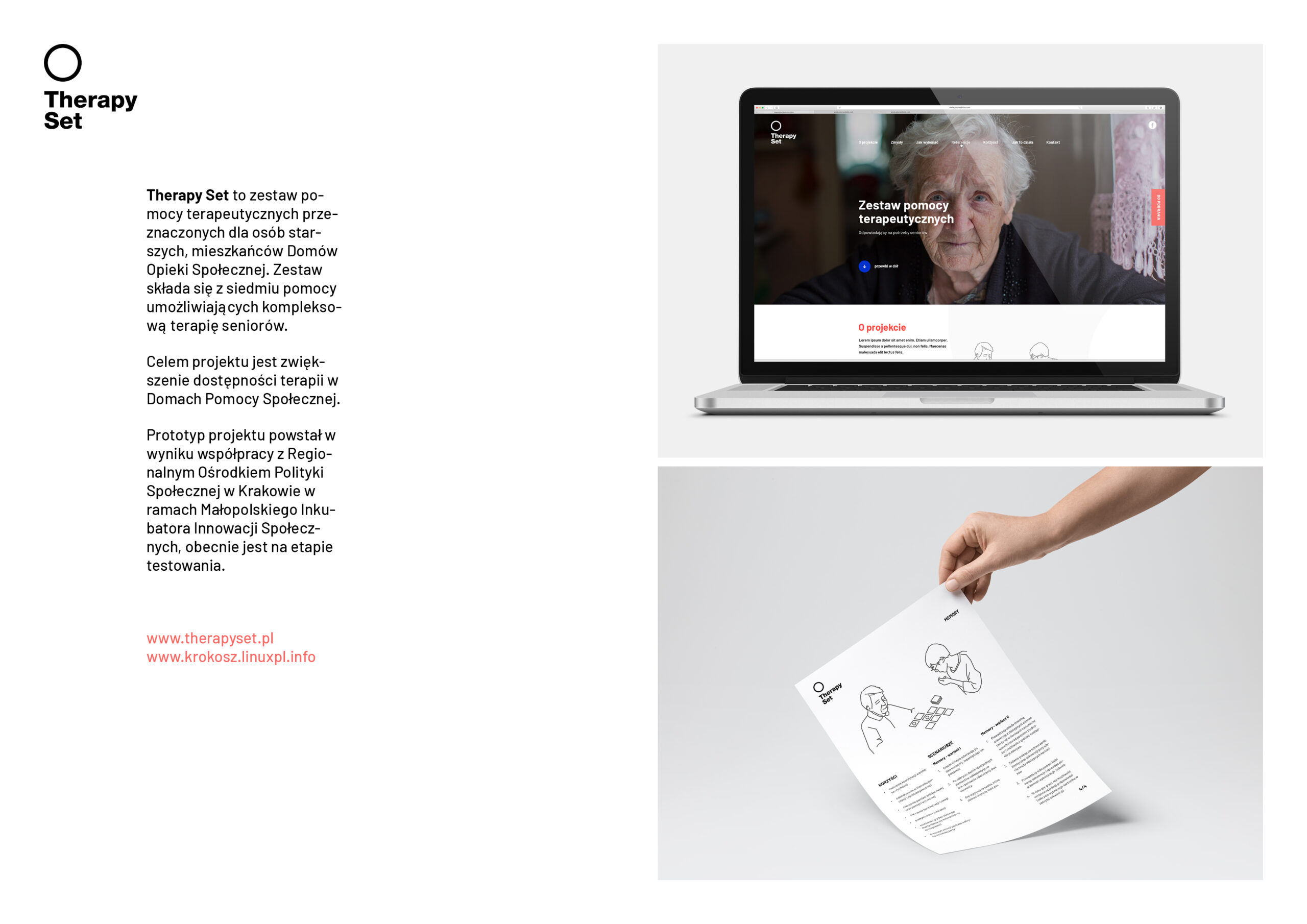
Therapy Set, design: Joanna Krokosz / from designer’s archive

Therapy Set, design: Joanna Krokosz / from designer’s archive
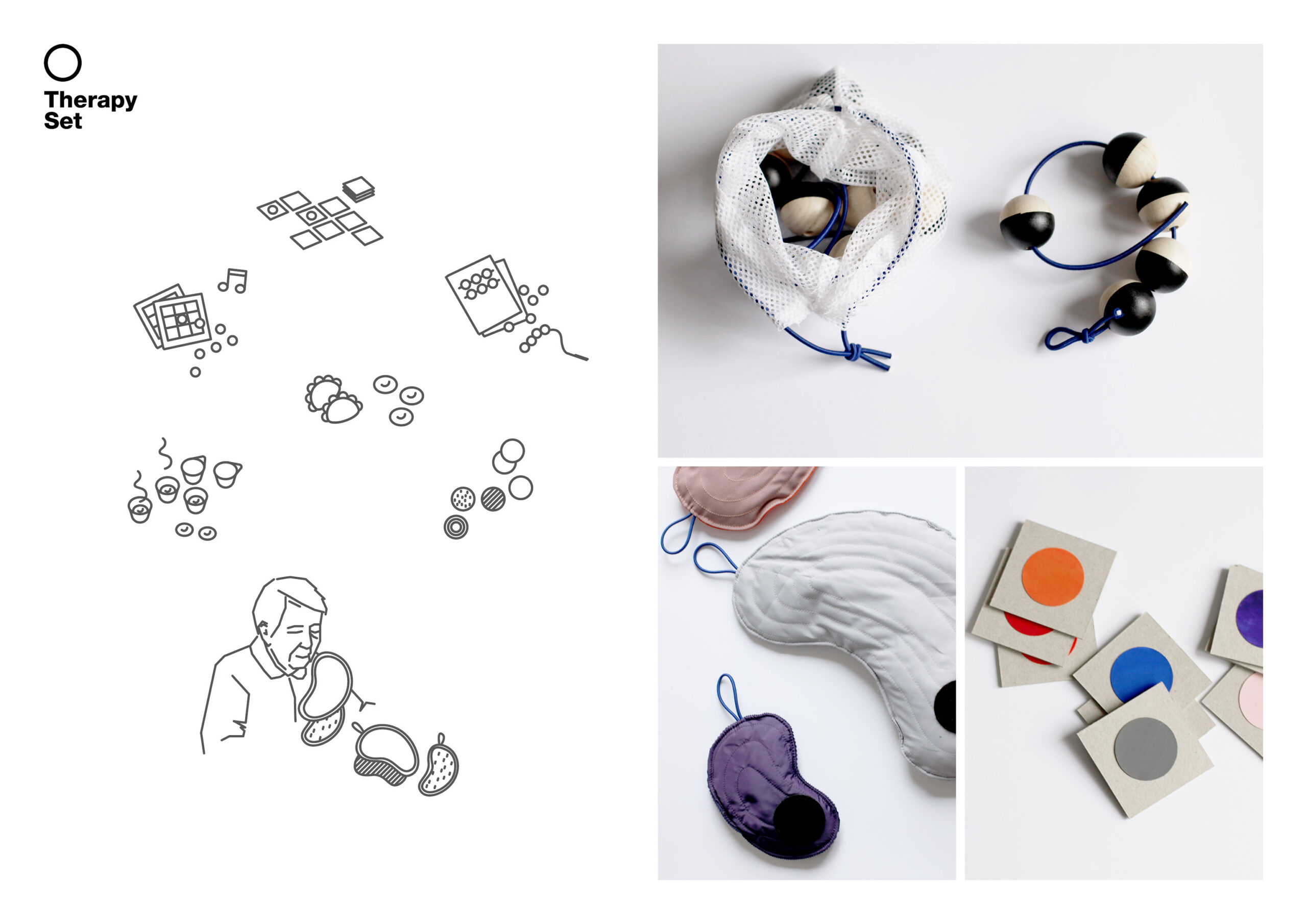
Therapy Set, design: Joanna Krokosz / from designer’s archive
The theme of Lodz Design Festival 2019 was „Good Life”. What does it mean for you? Do you believe a good life can be designed?
Joanna: A good life is a kind of balance for me. An optimization of reality. The balance between work and family life and the feeling that everything works. In this case, a good life is connected with a general sense of comfort, rather mental, because my needs physical are very well secured. For someone else, a good life will mean greater independence, e.g. in movement, accessibility or the opportunity to take up activity. It turns out that it doesn’t take much to improve the quality of life. Over the past year I have been working on the design of a universal jacket that takes into account the needs of people in wheelchairs. My research shows that rain for some people may be a reason not to leave the house and, for example, to cancel a doctor’s visit. For us, the matter is simple, we can use an umbrella, worse if our hands are busy driving the trolley and we get a lake on our knees. One person told me that a wet stroller is like an upholstered armchair and you can’t get up from it. I think it describes the scale of the problem well.
What inspired you to create the make me! project “Therapy Set”?
Joanna: I became interested in designing for the elderly a few years ago, I was looking for a topic that I could deal with as part of my MA thesis. Finally, I connected two groups of users – the elderly and children. Two years ago, I opened my PhD thesis at the Faculty of Industrial Design of the Academy of Fine Arts in Krakow, I knew from the beginning that I would take care of the elderly. To confirm my assumptions about the problems faced by seniors, I was employed as a volunteer in a Nursing Home. I worked with occupational therapists, I looked at the availability of therapy and it turned out to be a problem. It is hard to imagine a good life in a Nursing Home, where most people live because there was no other choice, they are not able to take care of themselves or they are lonely. Institutional care in Poland is in a very poor condition, there is a shortage of staff, and the needs of residents are met only at a very basic level. Like everyone is neat, well-groomed. From time to time they can take part in a disco for seniors, but so what if there are 15 people out of 300 who live in the House? I wondered why so few interesting projects targeted at older people hit the market. Now I know that perhaps this is due to the fact that this is the most diverse group imaginable. Over 65 years of age or when retiring, some people maintain their current fitness or even become more active, while some are starting to have health problems by gradually withdrawing from social life. Many people live alone. In addition, the rapidly changing lifestyle means that the older generation has a problem with accepting the world in a new, better version. The habits accumulated throughout life become particularly visible and even intensify. Elderly people are very reluctant to react to new products, which is why projects addressed to them must be simple and clever, sometimes hide their true face, e.g. therapeutic.
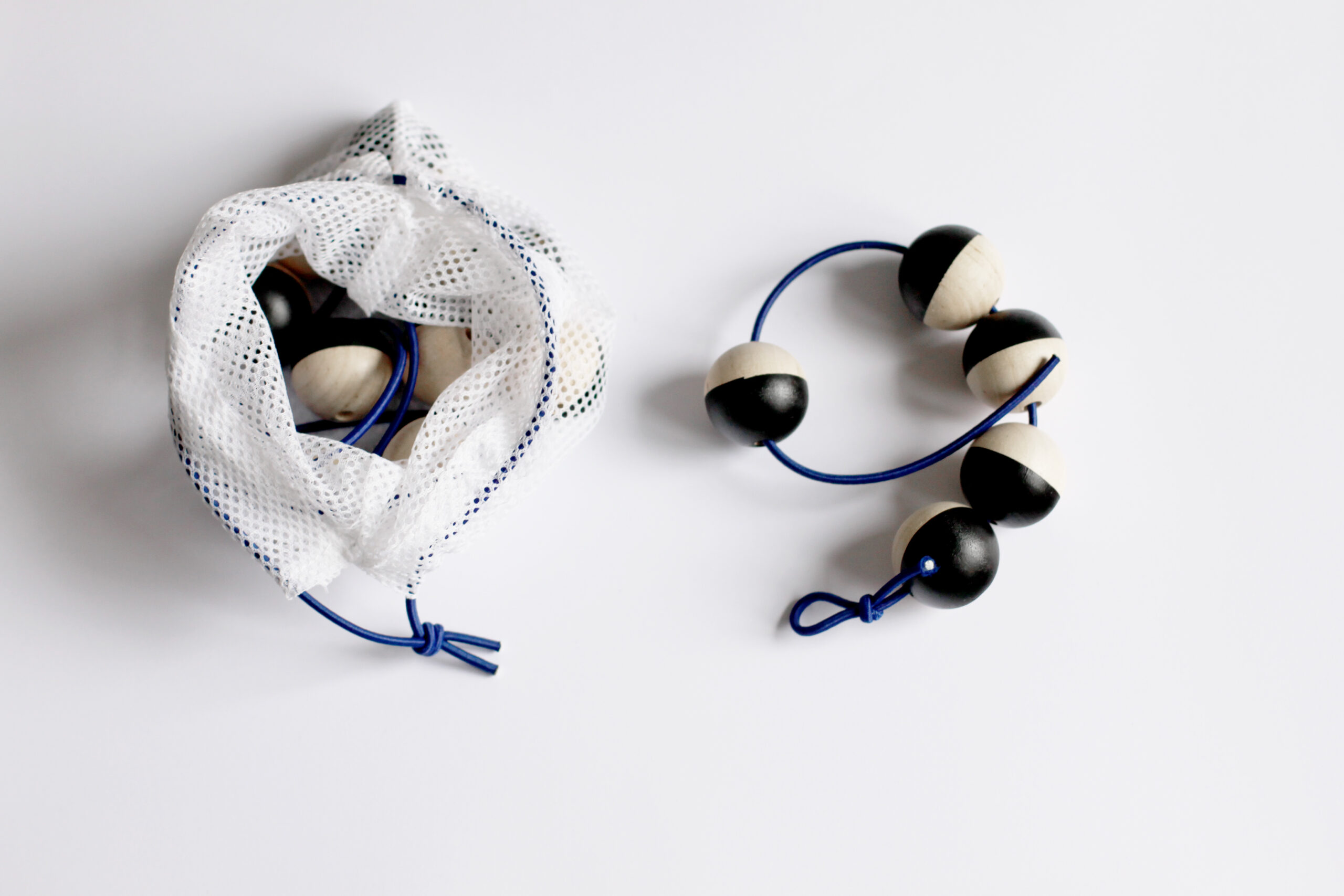
Therapy Set, design: Joanna Krokosz / from designer’s archive
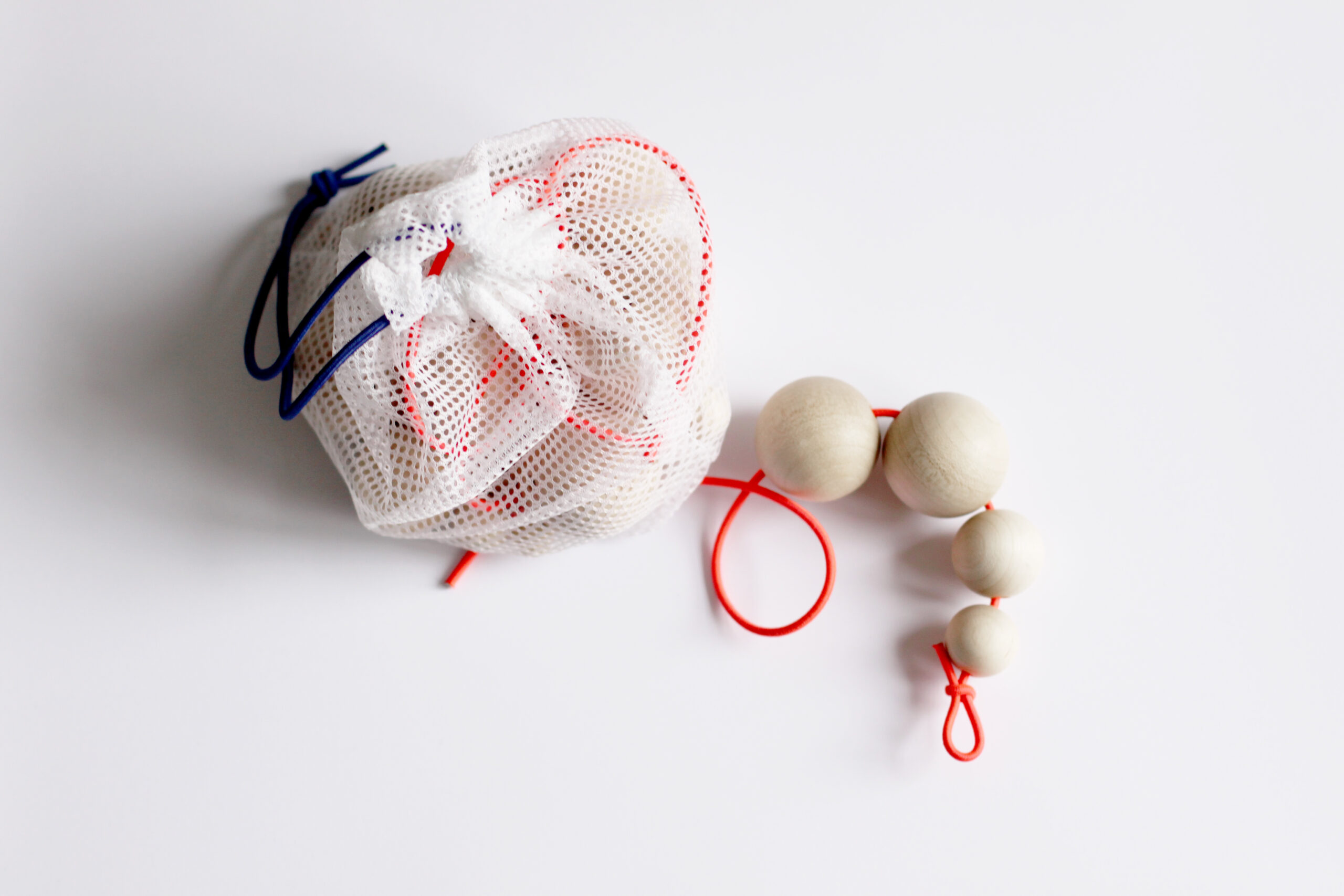
Therapy Set, design: Joanna Krokosz / from designer’s archive
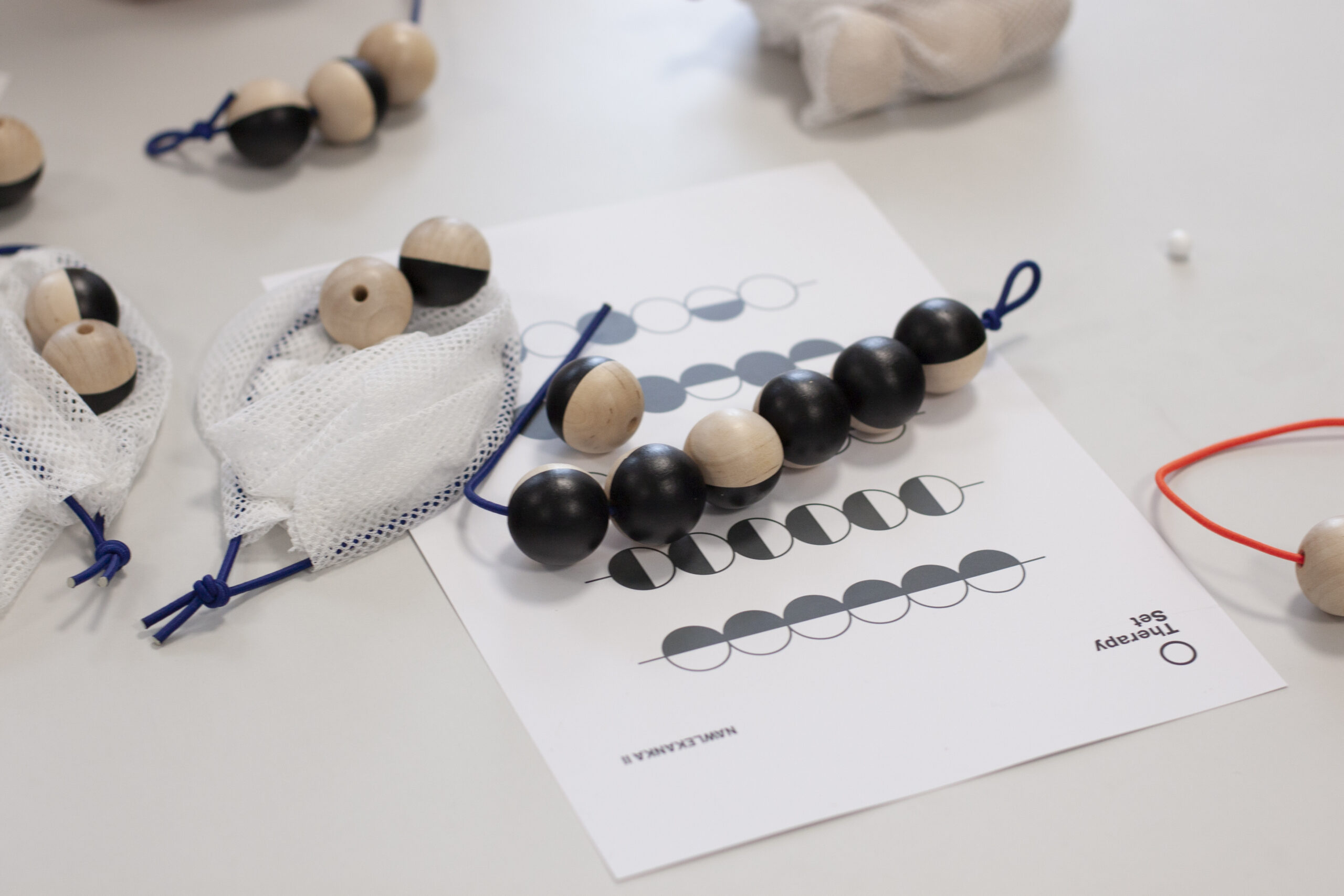
Therapy Set, design: Joanna Krokosz / from designer’s archive
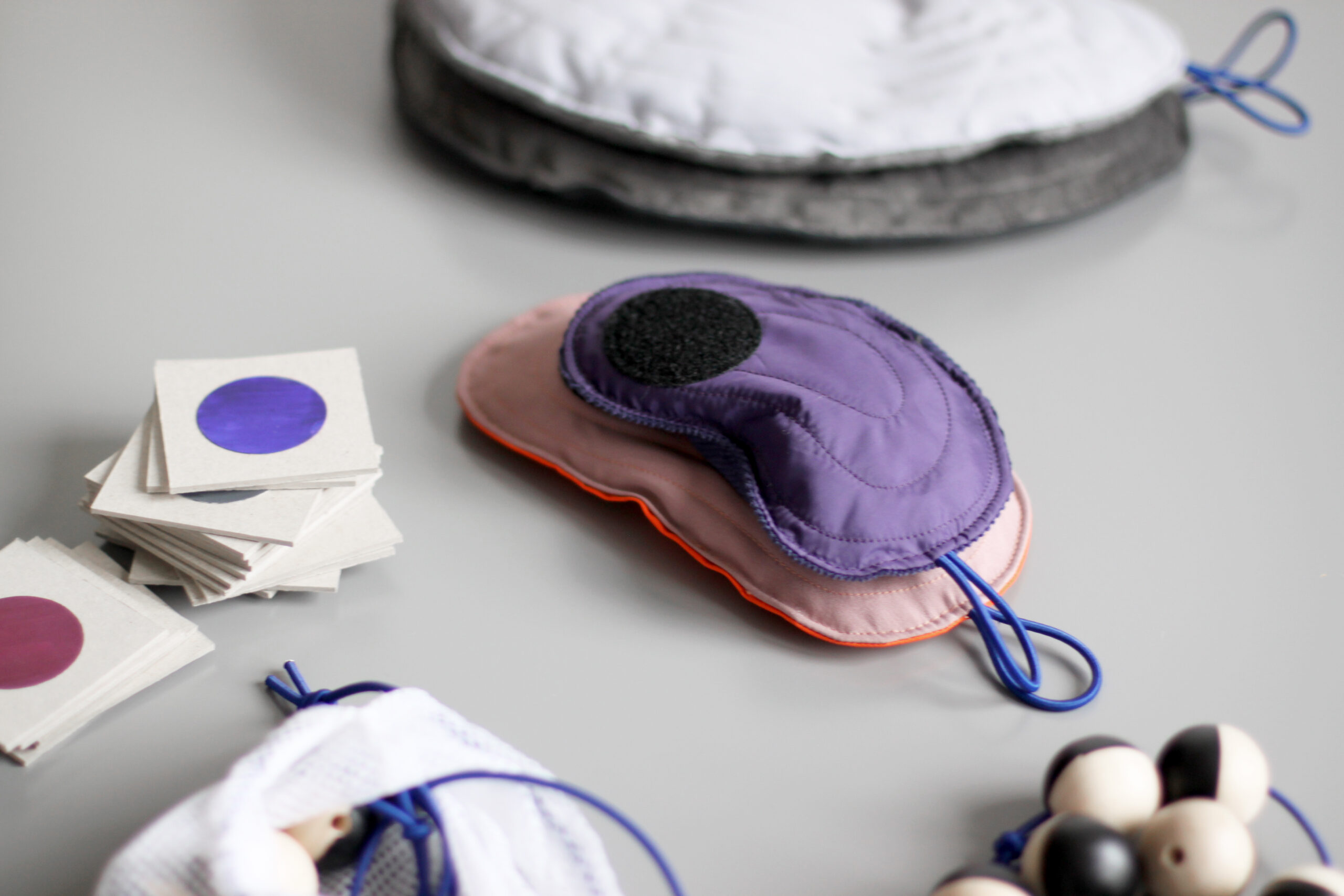
Therapy Set, design: Joanna Krokosz / from designer’s archive
Could you please tell us about the process of creating a ready-made object for the exhibition?
Joanna: The model was created in stages, some of the elements were made by residents of DPS as part of the workshops I run. The group average was very high, the oldest participant was 92 years old. As a result, a set of therapeutic aids for the elderly was created, which can be done as part of occupational therapy workshops. This does not mean that people performing aids must necessarily practice using them. Exercises are performed rather by people who, due to poor health, do not leave the bed. I think projects like Therapy Set can improve the quality of life for older people. Making the project available on an open source basis increases its availability.
How is the work on the project like at the moment? Do you plan to develop it?
Joanna: The project is part of my doctoral dissertation, I am still working on its development and implementation. I test all elements of the set together with the elderly and volunteers. Now I focus more on testing aids as elements used in physiotherapy and polysensory therapy at the patient’s bed.
Is your project already implemented on the market? What kind of investors are you looking for, with whom would you like to cooperate?
Joanna: Yes, partly the project is already available, all the files necessary to perform the help can be downloaded from www.therapyset.pl For each element of the set I designed the execution instructions with a list of necessary materials and exercise scenarios. At the beginning of work on the project I received a grant from the Regional Center for Social Policy as part of the Social Innovation Incubator. Thanks to that I could finance expert consultations, make prototypes and carry out tests. Now I am looking for institutions that would like to take advantage of my project and try to implement it in the centers I manage.
Are you working on something else right now?
Joanna: I am currently working on completing the Therapy Set project, the final version will be ready before the holidays. I am also working on my own brand, reusable packaging. We were also able to get funding at the Faculty of Industrial Forms, where I am working on creating a universal design laboratory. We want to create a place where students will be able to experience directly the situations faced by the users for whom they design, e.g. the elderly, blind, wheelchair users. We also plan to introduce changes to the curriculum by introducing elements of universal design from the first year of study.

Therapy Set, design: Joanna Krokosz / from designer’s archive
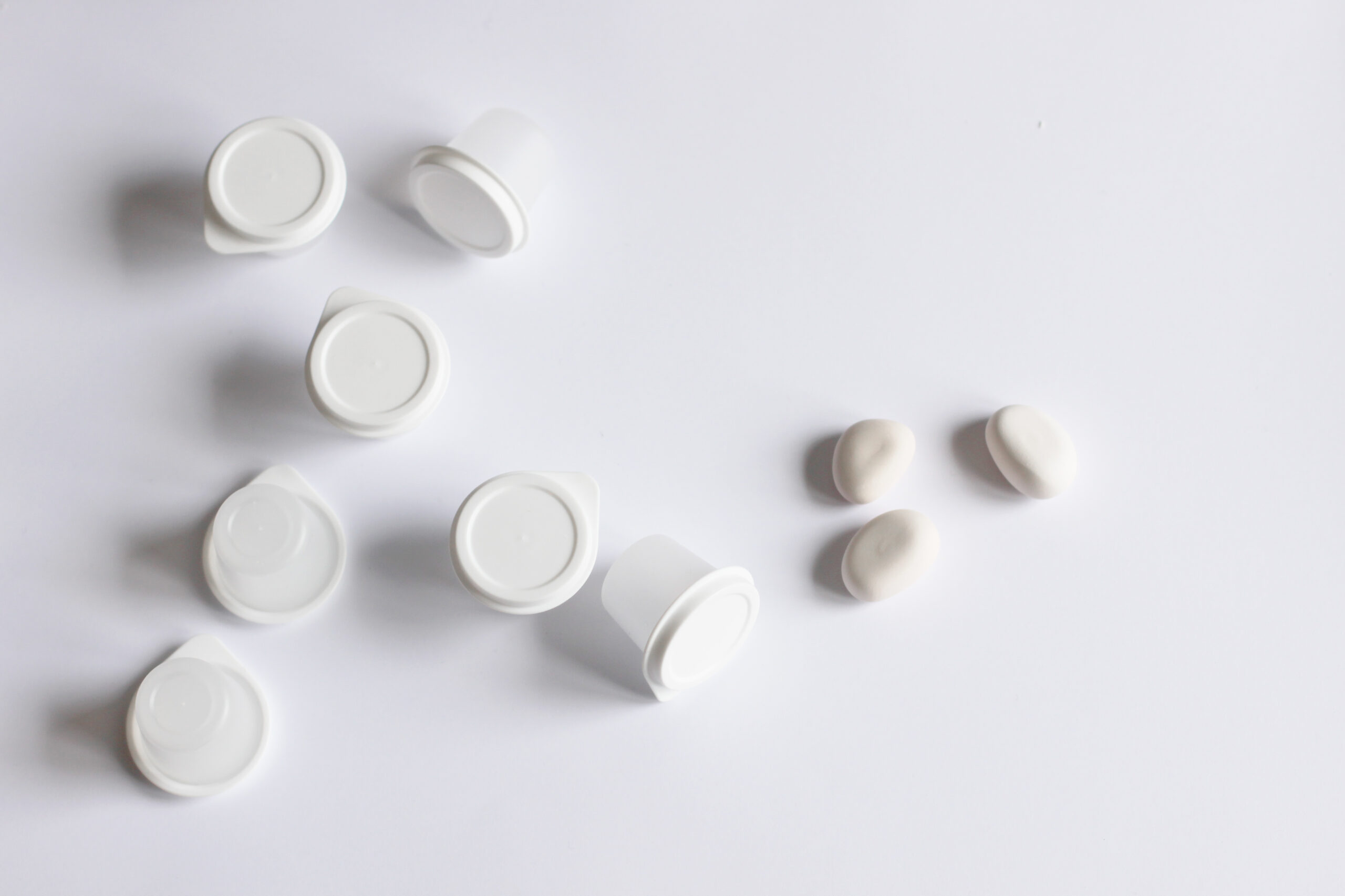
Therapy Set, design: Joanna Krokosz / from designer’s archive
Was the participation in the make me! final and the exhibition helpful? How do you perceive participation in the contest?
Joanna: During the finals of the competition I met many great people and we still have contact.. I also managed to establish several professional contacts, which may translate into new projects.
What are your plans for the next, let’s say, five years?
Joanna: I plan to finish my PhD and defend it in the fall. I will certainly continue to focus on design for the elderly, but I would also like to connect different groups of recipients, e.g. the elderly and children. I would like to develop my brand to balance computer work with my own work. While working on the Therapy Set project, I noticed the importance of manual work and direct experience. What I have always liked in design work is modeling, prototyping, meetings with users, I would like to focus on this in the next five years.
What should young designers pay attention to the most? What advice could you give to people who want to enter the make me! contest?
Joanna: I think the most important thing is testing solutions on users from the very beginning. Researching needs through interviews or conversations, and then working out the effect together. This is not a simple matter, because you have to reckon with the fact that our project will change, maybe the effect will be completely different than we expected, but it will certainly better respond to the needs of the target group, and this is our main goal. I also think that young designers should not be afraid, they should implement their projects on their own, even on a micro scale. Any such experience is priceless.

Therapy Set, design: Joanna Krokosz / from designer’s archive

Therapy Set, design: Joanna Krokosz / from designer’s archive
Lastly, we have a kind of a questionnaire prepared for you:
If you could be the designer of any project in the history of mankind, what would it be?
Joanna: A spoon.
What do you think will be the next breakthrough technological invention that you will live long enough to see? What are you most looking forward to?
Joanna: I would like to wait for the invention of plastics that are really biodegradable.
Who is the most important designer these days?
Joanna: Jasper Morrison
Can you name the most interesting designers in Poland for you?
Joanna: Pani Jurek and Bartosz Mucha
What should be on the best-designed pizza?
Joanna: A rucola.
What book worth recommending did you read lately?
Joanna: Martin Grunwald’s “Homo hapticus”, Richard Louv’s “Last Child of the Forest”, source texts on occupational therapy from the beginning of the century are available at www.archive.org
Your three favorite TV series are:
Joanna: I prefer movies.
Favorite movie scene:
Joanna: The Isle of Dogs by Wes Anderson, the whole movie.
Thanks for an interesting conversation!






